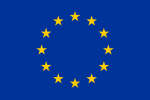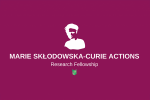Recruiting beneficiary: City, University of London, United Kingdom
Internal supervisors: Prof. Mark Broom, Dr. Andrea Baronchelli
Brief project description: This project will develop and expand evolutionary game theoretical models of cooperation for multiplayer interactions. The main goal is to explore the conditions when the evolution of cooperation is favoured. Recent work has found initial structural properties which support cooperation, and we will carry out a more thorough investigation of these and other properties. We will consider a wide range of multi-player cooperative games, which have been demonstrated to have distinct properties. These models will then be applied in different fields, such as epidemiology.
Updates: So far, Diogo has worked on several game-theoretic models. He finished his first project on the effects of population size on finite population models, showing that, counter-intuitively, single-mutant strategies often benefit from being in larger populations. During his secondment at the University of North Carolina in Greensboro, he worked with agent-based models of mobile populations facing public goods dilemmas, focusing on the interplay between network topology and different types of evolutionary processes. He is now focused on modelling general social dilemmas and cooperation on community-structured populations, as well as game-theoretic models of skill transmission processes.
Selected contributions:
Pires, D. L., Broom, M. (2024). The rules of multiplayer cooperation in networks of communities. PLOS Computational Biology 20(8): e1012388.
Pires, D. L., Erovenko, I. V., & Broom, M. (2023). Network topology and movement cost, not updating mechanism, determine the evolution of cooperation in mobile structured populations. PLoS ONE 18(8): e0289366.
Pires, D.L., & Broom, M. (2022). More can be better: An analysis of single-mutant fixation probability functions under 2×2 games. Proceedings of the Royal Society A: Mathematical, Physical and Engineering Sciences. 4782022057720220577.



